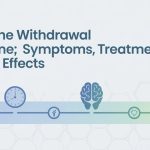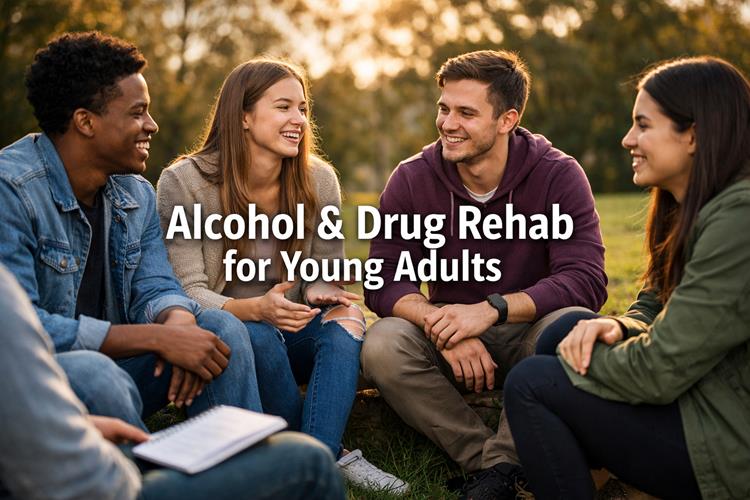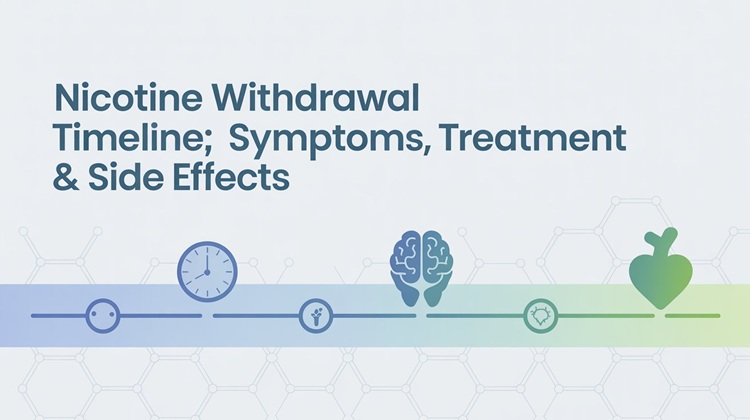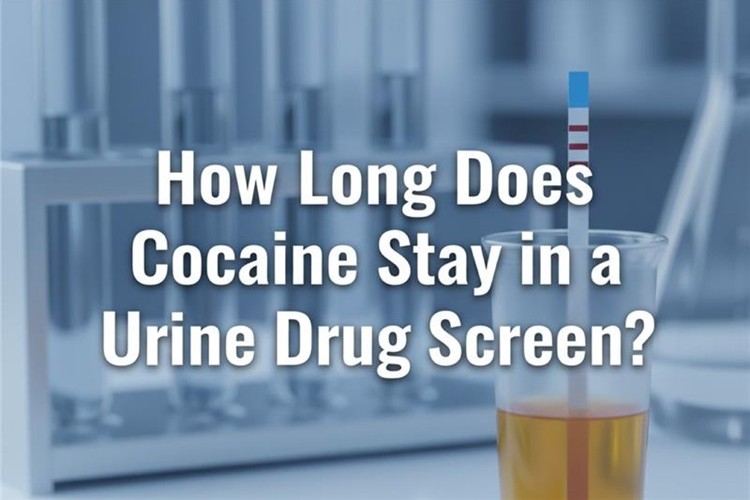Schizoaffective disorder exists as a complex mental illness which links schizophrenia symptoms with those of depression and bipolar disorder. Consuming proper medical help with accurate diagnosis remains complicated despite the combination of schizophrenia signs with mood disorders yet satisfactory treatment enables people who have schizoaffective disorder to find fulfillment in life.
Palm Coast Treatment Solutions recognizes the difficult experience of schizoaffective disorder for those who live with this mental condition. This weblog examines the nature of schizoaffective disorder while elaborating on its different kinds alongside its observable symptoms as well as treatment choices for patients.
What is Schizoaffective Disorder?
The specific definition of schizoaffective disorder consists of which elements? The continuous mental illness presents symptoms from schizophrenia thought disorders including hallucinations or delusions together with signs from mood disorders which consist of depressive or manic condition. The condition blends elements of schizophrenia with mood disorders which causes healthcare providers to potentially identify it as a single diagnosis.
Engaging in normal activities can help you manage symptoms of other psychotic conditions since mood symptoms only take a backseat in schizophrenia but such symptoms rule the clinical picture of schizoaffective disorder. The mental disorder changes both cognitive processes and emotional responses as well as motor functions which results in severe effects on social capabilities.
What are the Types of Schizoaffective Disorder?
Schizoaffective disorder exists in two category types with their classification depending on the mood episode type.
1. Schizoaffective Disorder Bipolar Type
The diagnostic group includes experiences of elevated mood as well as increased energy and impulsiveness with occasional alternating phases of depression. The manic phases of this disorder create diagnostic challenges because they present additional symptoms similar to psychotic ones.
2. Schizoaffective Disorder Depressive Type
This type presents major depressive episodes together with psychotic symptoms. People who suffer from this condition show long-lasting depressed moods together with feelings of hopelessness and experience two forms of psychosis and reduced activity interest.
When determining bipolar schizoaffective disorder or the depressive type the treatment plan improves the management of psychotic symptoms along with mood symptoms.
100% Confidential Support is Available 24/7
No matter what you’re going through, you’re not alone. Our dedicated team is here to provide a safe, judgment-free space where you can talk openly and honestly. Whether you need emotional support, resources, or just someone to listen.
We’re here for you—completely confidential and always respectful of your privacy. Call us today!
Symptoms of Schizoaffective Disorder
People need to recognize the symptoms of schizoaffective disorder to obtain timely medical assistance. All types of schizoaffective disorder produce different combinations of psychotic and mood-related signs that become apparent in patients.
Common Psychotic Symptoms:
- People with schizoaffective disorder experience visual or auditory perceptions which have no basis in reality.
- People who experience the condition hold false beliefs without any foundation in reality.
- Disorganized thinking or speech
- Paranoia or suspiciousness
- Impaired communication or social functioning
Mood-Related Symptoms:
- Manic episodes (in bipolar type):
- Increased energy or agitation
- Grandiosity or inflated self-esteem
- Reduced need for sleep
- Impulsivity or reckless behavior
- Depressive episodes (in both types, but predominant in the depressive type):
- Persistent sadness or low mood
- Fatigue or loss of energy
- Feelings of worthlessness or guilt
- Difficulty concentrating
- Thoughts of death or suicide
A person requires psychotic symptoms to receive an official diagnosis without mood symptoms active at the same time. A diagnosis of schizoaffective disorder requires psychotic symptoms beyond mood disorder episodes thus differentiating it from psychotic features present in mood disorders.
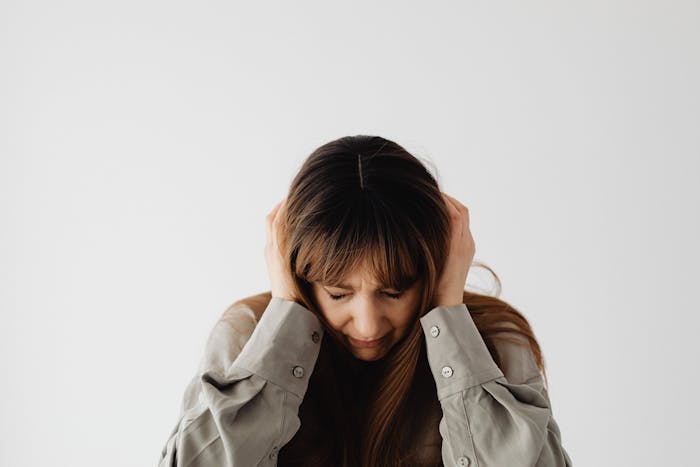
Contact Palm Coast Treatment Solutions
Battling with Drug and Alcohol Addition? Remember, you are not alone and we are here to help you!
How is Schizoaffective Disorder Treated?
The treatment of schizoaffective disorder requires different methods for each patient because there is no single solution yet doctors can help patients control their symptoms to enhance their daily life. A treatment approach for schizoaffective disorder requires medication alongside therapy support and assistance with healthy lifestyle habits.
1. Medication
Controlling both psychotic symptoms and the mood disturbances of the condition mandates the use of medications.
- Antipsychotics: Help reduce hallucinations and delusions. The FDA has approved paliperidone (Invega) specifically for schizoaffective disorder.
- Mood Stabilizers: Used mainly in the bipolar type to control manic and depressive swings.
- Antidepressants: Useful in the depressive type to manage symptoms like low mood and lack of energy.
A psychiatrist selects treatment medicines based on each person’s symptoms as well as their diagnosed schizoaffective disorder type and drug tolerance results.
2. Psychotherapy
Correct understanding of the condition, along with skill development and relational maintenance, requires talk therapy to be considered essential.
- Cognitive Behavioral Therapy (CBT): The therapy enables patients to confront and modify patterns of thinking and actions that prove unproductive.
- Family Therapy: The program actively includes family members to improve home-based recovery through better family communication.
- Group Therapy: Offers a sense of community and shared experience, reducing isolation and stigma.
Therapy can also address co-occurring disorders such as anxiety, substance abuse, or PTSD, which are common among individuals with schizoaffective disorder.
3. Lifestyle and Social Support
Consistent routines, a supportive environment, and community resources play a key role in long-term recovery.
- Healthy sleep and diet routines
- Regular exercise
- Peer support groups
- Case management or social skills training
Palm Coast Treatment Solutions delivers patient-oriented holistic care to address mental health as well as complete well-being for every person.
Overcome Addiction with Palm Coast Treatment Solutions.
Book an appointment.
Seek Help for Schizoaffective Disorder
People who have schizoaffective disorder along with their family members face overwhelming challenges in their daily lives. But recovery is possible. The combination of timely recognition of schizoaffective disorder symptoms alongside continuous treatment allows better long-term results.
Notice any symptoms of schizoaffective thought disorder, such as unusual beliefs or auditory hallucinations or sudden mood swings in yourself or anyone you look after so do not overlook them because they require professional attention. Signs of this disorder extend beyond regular phases or stress indicators because they represent a medical issue requiring therapeutic intervention.

Palm Coast Treatment Solutions dedicates its expertise toward assisting people who have schizophrenia combined with mood symptoms associated with schizoaffective disorder. With our team including compassionate clinicians and therapists along with support staff we will build a treatment strategy that treats both psychological and emotional components of the disorder. The path to a better future begins with a single call to Palm Coast Treatment Solutions at (386) 284-4151.







